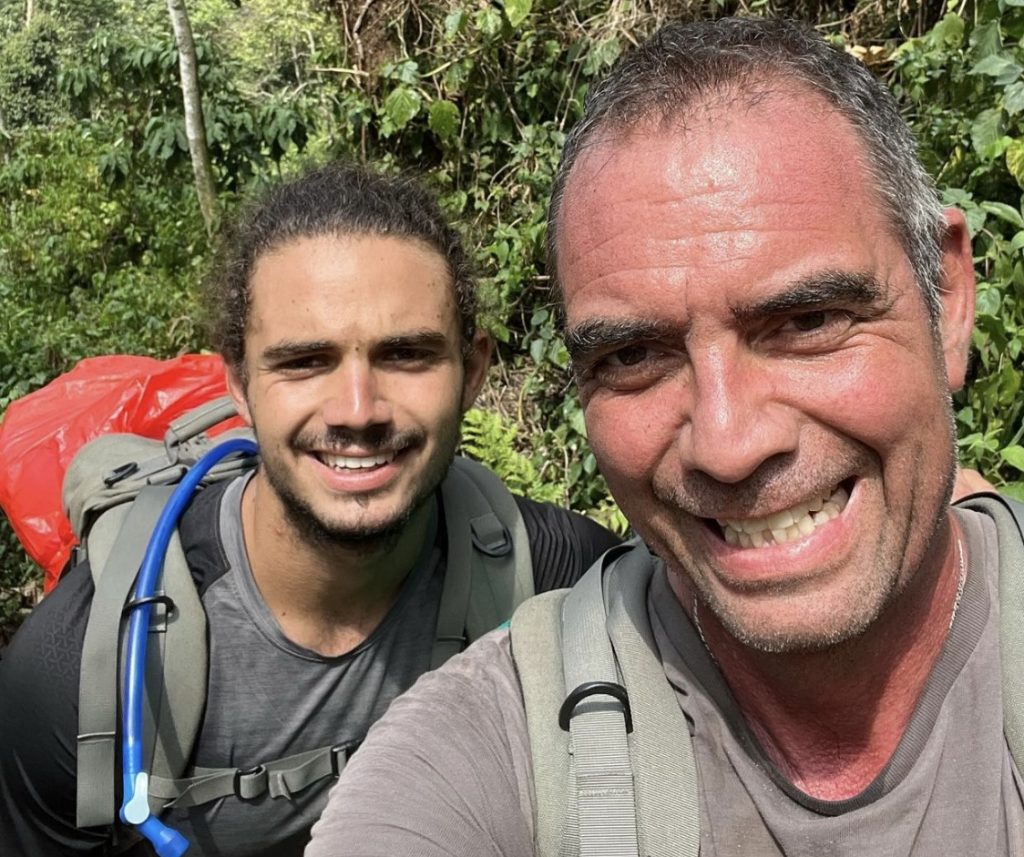
When Can Blaschke opted to take a gap year, he wanted to do more than just break from education: he decided to dedicate three months of his time off to a vertical trek down Africa, using only public transport alongside his journalist father, Björn Blaschke.
The duo commenced their journey on 30 June, 2022, starting from Egypt’s Alexandria, in hopes of reaching South Africa’s Cape Town by September.
The original plan was to pass through 12 African countries: Egypt, Sudan, South Sudan, Ethiopia, Kenya, Tanzania, Zambia, Malawi, Zimbabwe, Botswana, Namibia, and finally South Africa. Unfortunately, due to visa complications and border restrictions, they had to substitute Ethiopia with Uganda.
View this post on Instagram
The duo tailored their route around the Trans-African Highway Four, also known as The Cape to Cairo Road or Pan-African Highway. This road will connect 10 out of the 12 countries in the Blasckhes’ plan and is set to be completed by 2024. It is part of an ambitious, yet unrealized trans-continental road network.
Two destinations, Malawi and Namibia, are therefore deliberate detours as the Blasckhes wish to investigate local curiosities and food delicacies there such as “mice on stick.”
On Instagram, Can documents this journey by sharing videos of their day to day activities.
In addition to landscapes, Can posts portraits of people who strike a chord with him, and captions them with deeper insight into these individuals, their political leanings, and their daily struggles.
View this post on Instagram
The elder Blascke, Björn, offers daily snippets of the duo’s progress on Twitter and Instagram, using the hashtags #VaterSohnAlexKaptadt in German and #FatherSonAlexCapeTown in English.
Egyptian Streets interviewed Can on Friday July 29, 2022, when the pair were heading to Jinja, Uganda—their final stop before approaching the Kenyian border.
Vagabonds, Nomads, and Adventurers
The Merriam-Webster dictionary defines ‘vagabond’ as “a person who wanders from place to place without a fixed home.” Can, 18, describes himself as one, with “multiple homes.”
Born in Jordan, Amman, to a German father and an Egyptian-German mother, Can has been habitually traveling from one place to another for various reasons, primarily his father’s journalistic work.
Apart from necessity, Can attributes his tendency to wander to the overarching sense of adventure the whole family shares. A “nomadic” tendency they all embody.
“We have this nomadic thing in us […],” Can describes, “keeps us moving all the time and makes us want to keep moving all the time. We always say that our home is where we want it to be, because you can have a home anywhere.”
The family’s adventurous nature stems from Björn himself, who traveled the world due to his own curiosities and his job as a journalist. When he was only 14, Björn toured Europe on a motorbike, later visiting Morocco, the Western Sahara, as well as Turkey upon graduating.
It is likely that Björn would still have roamed the Middle East had his occupation not brought him to its countries, reporting particularly on Iraq, Syria, and Lebanon.
Although Can’s mother prefers a sedentary life, she never discourages her children’s knack for adventure, rather she supports it.
“Abenteuer erleben nur die Abenteurer, (Adventures are only lived by adventurers)” – is the saying the parents constantly used to motivate their children when they were younger. Whenever the family encountered an unpleasant circumstance or faced the unknown, the expression reminded them that only they, as adventurers, can “discover the uncertainty.”
Can says the heartening quote would “sweeten off’ the sourness of challenges.
.
“There are no other boundaries to being an adventurer other than having to engage in adventure. The definition of adventure is, at the same time, completely defined by each individual themselves,” he elaborates.
Traversing Africa, Politics and Beauty
For the last 11 years, the Blaschkes have been living in Egypt for Björn’s work. Can describes the country as “one of his many homes.”
Can and his sister attended The British International School in Cairo (BISC), a private institution which he says trapped him “in the country’s 1 percent bubble.”
During summers, the family would travel, partaking in a range of activities such as hiking, canoeing, and kayaking. Once in 2016, when the family was on their way to the North Coast, Egypt, Can had a moment of revelation: the desert seemed endless, and unexplored.
Stunned by this vastness, Can wanted to explore it, to reach the opposite side — and his inner compass was urging him “south, not west,” he describes.
“From then on, […] the idea of traversing Africa grew. The past two years, we started planning it more concretely,” Can says.
When asked about other reasons for the trip, apart from adventure, Blaschke stresses his need to “get out of his [privileged BISC] bubble,” and to learn more about himself as he responds to different situations. He also hopes to gain some insight into what career choice he should pursue as he gains exposure to the real world.
His motive behind choosing Africa specifically, on the other hand, lies in the rich continent itself.
“Africa is a wild continent — it’s exciting! Culturally, it’s probably the most diverse. […] Nigeria on its own has more than 200 languages, I think that’s enough [motive].”
View this post on Instagram
Can mentions their initial intention to travel by car, but soon realized the hassle of obtaining driving permits and potential motor breakdowns.
“It wasn’t just that we didn’t want to use the car. Choosing public transports had to do with us wanting to show how well or badly connected these [African] countries are,” Can begins before revealing they opted for public transport.
The Blaschkes originally meant to cross the border from Sudan to Juba, South Sudan, on a river barge, based on the reassurances of a South Sudanese Embassy official in Cairo.
When they reached Kosti, the father and son discovered that the transport method was shockingly inoperable. Consequently, the two were forced to return and board a commercial flight from Khartoum, the only possible option to reach their next designation.
View this post on Instagram
Aside from assessing Africa’s interconnectivity, Can refers to public transportation as a solution to curbing climate change. Remedying congestion, conserving energy, and reducing greenhouse gas emissions are some of its benefits.
The duo relied on Björn’s previous experience in Egypt, Sudan, and South Sudan for planning, where they faced plenty of challenges in the latter.
Apart from the border crossing mishap, Can says the South Sudaneese roads were not properly functioning due to the rainy season. However, the condition of the infrastructure was not the only dilemma, as lack of safety and crimes were a major issue in the country’s capital.
“The reality of things is a lot of hunger, poverty, and drug abuse. There’s a lot of violence that’s engraved in the people […] that you see walking through the city,” Can recounted. “A taxi driver told us, when we wanted to bargain for the 16 dollars he wanted for a five-minute taxi, ‘You pay, we don’t slit your throats.’”
The Republic of South Sudan is not only incredibly vulnerable to climate shocks in the form of severe droughts and floods, but it is also affected by its continuing intercommunal conflicts, which exacerbate poverty and undermine development endeavors and aid. The World Bank estimates “two-thirds of South Sudan’s population to be in need of humanitarian assistance in 2022.”
Still, despite its instability, Can objectively recognizes the potential of the conflict-ridden country particularly its “untouched” beauty, culture, and people.
“South Sudan is again a special case. It has so much to offer in terms of nature, natural resources, the people, and cultural diversity — the country has 64 tribes that all claim to be different ethinic groups,” Can explains.
For the remaining countries, the Blaschkes researched online, leaving room for spontaneity and flexibility and opening doors for unique experiences.
Although the Blaschkes had already visited fascinating places like Jabal Barkal and Karima in Sudan, they could not compare to the once in a lifetime experience the pair had in Uganda.
There, tourists apply for permits six months earlier to see the critically endangered mountain gorillas at the Bwindi Impenetrable National Park. Last minute, Björn and Can were fortunate to secure access and witness the primates firsthand, despite only eight people being allowed to view a gorilla family per day.
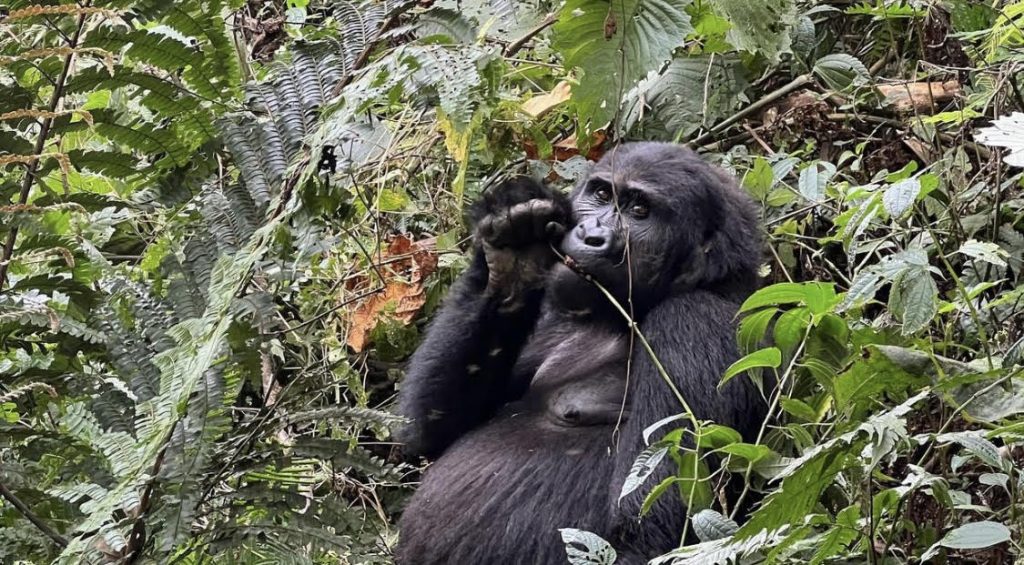
Can admits that words and pictures cannot give the scene justice.
From his perspective, Uganda also holds the most beautiful scenery at Rwenzori’s national park and its mountains. The preserved landscapes remain pure and clean unlike the plastic and garbage-filled deserts they saw elsewhere.
Ugandans are especially mindful of their nature, and Can describes the country’s rangers and citizens as “caring genuinely about what they do and wanting to respect the [good] limits set by the law.”
As to whether his vision of Africa has changed, Can says he is only beginning to form his own perspective. So far, he has two central observations.
“I think Africa has no cultural boundaries. Egyptians are as African as South Africans as South Sudanese as everyone living in this continent,” he stresses.
Clarifying further, Can stresses the environment itself differs progressively as a person moves down Africa. Granted that people adapt to their surroundings through their culture, culture is gradually altered as well. As they continue descending further, Can believes the smooth transition of cultural and habitat change can be unnoticeable.
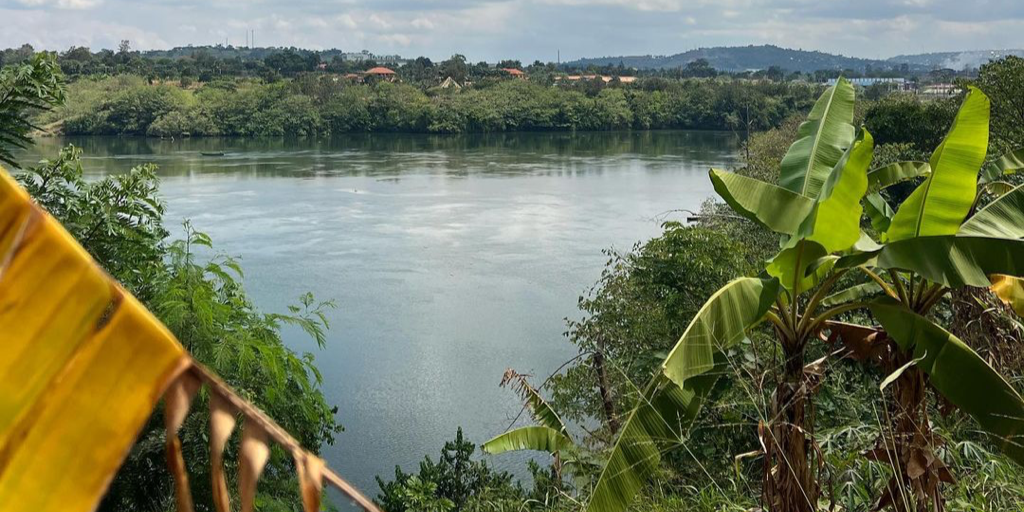
What is also evident for him and his father is that the surface divisions of Africans along the colonially-dictated border lines are arbitrary.
“While it has many diverse features, I think essentially it all is one Africa,” Can says. He references a Ugandan history teacher whom they quote saying “what connects Africa is the story that everyone has.”
Providing an example, Björn and Can elucidate that the majority of African countries had been colonized, whether by western powers or neighboring states. Africa shares this common history of colonialism, and its countries remain constrained by colonial legacy in the form of forced international borders.
“The Nubians living in the south of Egypt have more in common with the Nubians living in Sudan than they do with the government in Cairo. So, why is there a line drawn through their territory?”
On a final note, Can Blaschke wonders if they truly grasped the extent of what “Mama Africa” is. The mission of discovery is far from being accomplished. For him, the answer of connection does not automatically translate into colonialism, for instance, but goes beyond that.
That is why the Blaschkes are adamant on posing questions and receiving answers from the people themselves as to what “connects the fragments of this continent, its people, cultures, and political systems.”
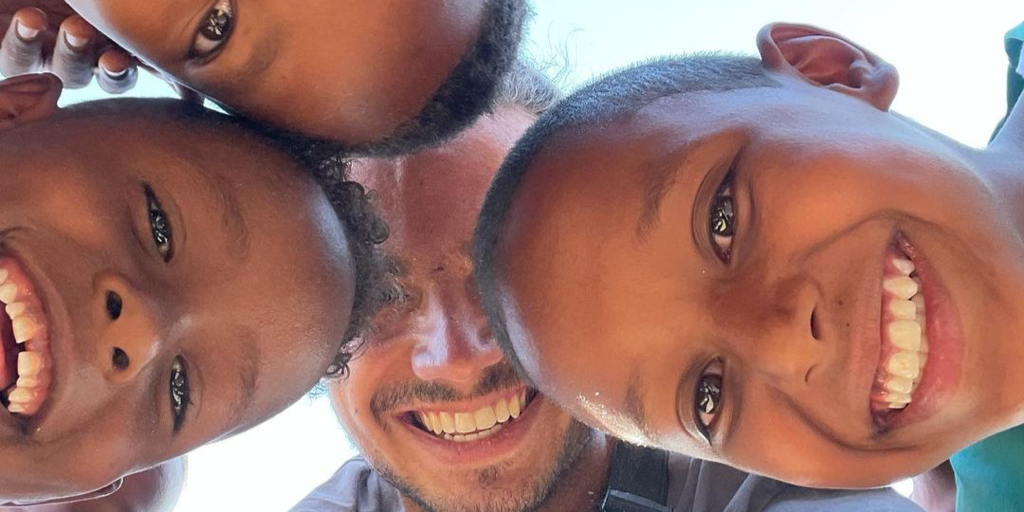



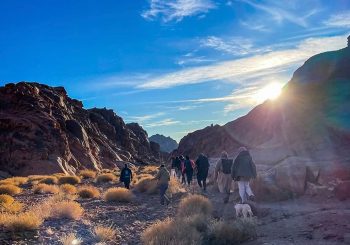
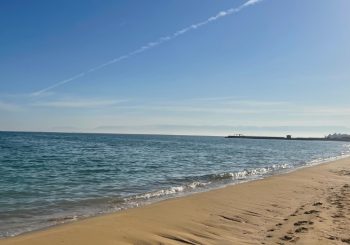
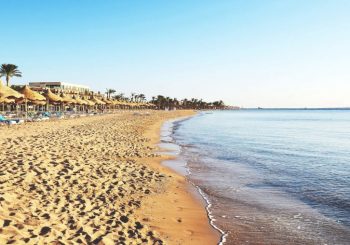
Comments (0)